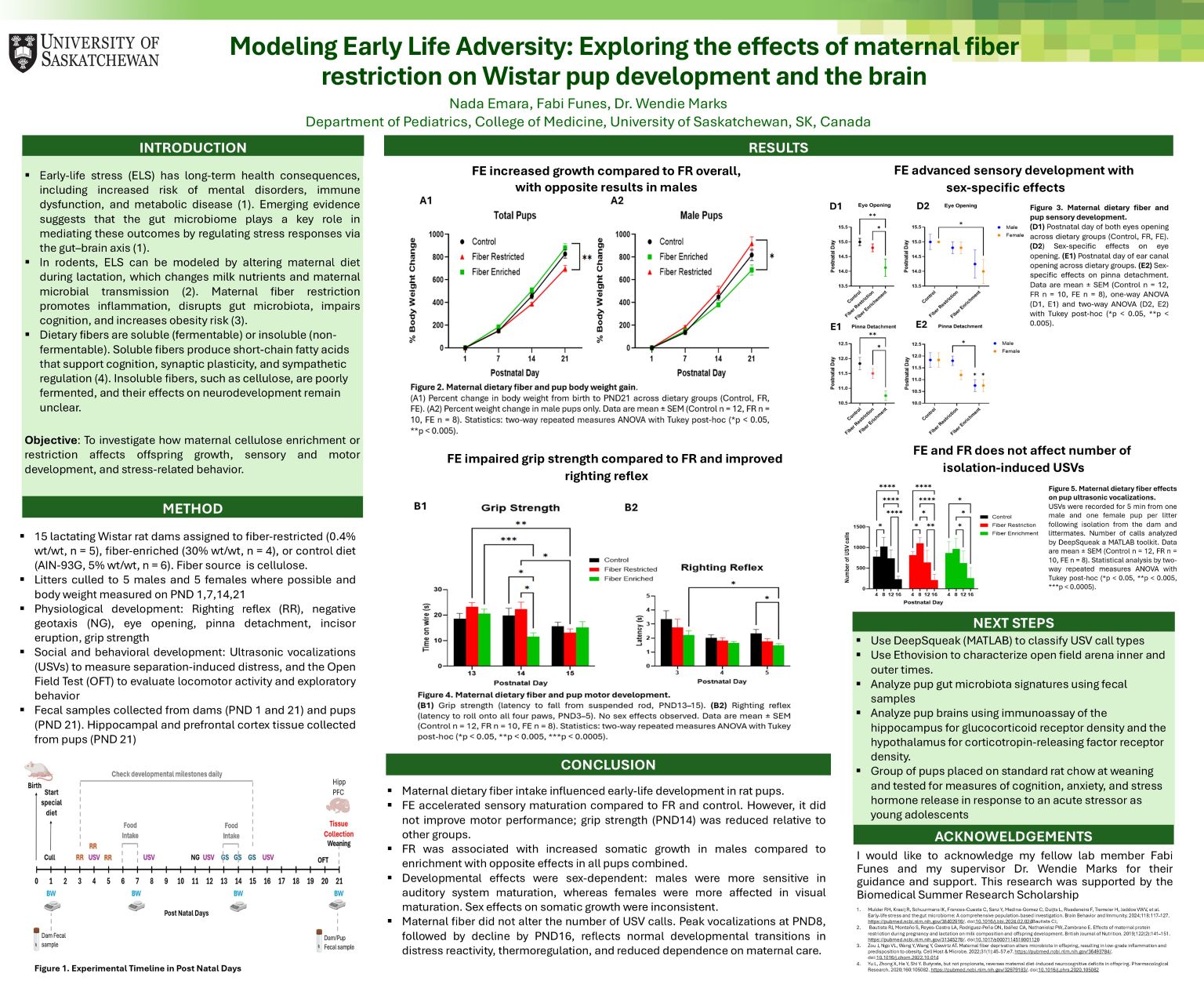
Modeling early life adversity in Wistar rats: Exploring the effects of maternal fiber restriction on pup development and the brain
Nada Emara
Early-life stress (ELS) can have long-term physical and cognitive health effects. In rodents, ELS can be modeled by altering maternal diet during lactation. This changes nutrient availability and microbial transfer to pups, influencing their development via the gut–brain axis. In this study, lactating Wistar rat dams were assigned to fiber-restricted (0.4% cellulose), fiber-enriched (30% cellulose), or control (5% cellulose) diets. Offspring were assessed for somatic growth, sensory and motor development, and stress-related behaviors from postnatal day 1–21. Enrichment accelerated sensory maturation, with earlier pinna detachment and eye opening compared to restriction and control. Males were more sensitive in auditory maturation, whereas females were more affected in visual maturation. For motor performance, restriction impaired righting reflex and grip strength, whereas enrichment improved righting reflex but reduced grip strength. For somatic growth, enrichment produced the greatest overall weight gain compared to restriction, though in males the opposite trend was observed. Maternal diet did not significantly affect ultrasonic vocalization counts. Overall, these findings suggest that maternal dietary fiber shapes early-life somatic, sensory, and motor development, with some effects differing by sex. Future work will examine gut microbiota, neuroendocrine markers, and adolescent cognition and stress responses to uncover underlying mechanisms.
